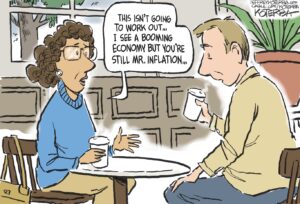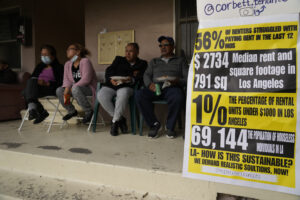Are Single People Getting Financially Screwed?
According to Lisa Arnold and Christina Campbell, singles can pay as much as $1 million more over a lifetime than those who are married, simply because of their marital status.
Being unmarried in America doesn’t come cheap, as Lisa Arnold and Christina Campbell demonstrate for The Atlantic. The two women, who run Onely.org–a site that focuses on modern American single life–wanted to figure out how much more single women paid over the course of their lifetime compared with their married counterparts for things such as taxes, health care and housing.
What they discovered is somewhat shocking: Singles can pay as much as $1 million more than those who are married, simply because of their marital status. It’s a subject worth talking about not just because more and more people are choosing to stay single, but because a majority of the states in the U.S. expressly prohibit same-sex couples from even getting married.
Here’s a little background: “U.S. Federal Code Title 5 Part III says: The President may prescribe rules which shall prohibit … discrimination because of marital status. Yet more than 1,000 laws provide overt legal or financial benefits to married couples,” Arnold and Campbell write. “The U.S. government is the main perpetrator, but private companies follow its lead. Thus marital privilege pervades nearly every facet of our lives. Insurance policies — ranging from health, to life, to home, to car — cost more, on average, for unmarried people compared to those who are married.”
These discriminatory policies, Arnold and Campbell say, were initially created and continue to exist in order to encourage people to get married, because the institution is still seen largely as a “social good.”
“Some have suggested that marriage makes people healthier and happier,” they write, “but critics such as Dr. Bella DePaulo have pointed out that most studies show that, in the long term, there is little to no difference between married and single people in terms of health, happiness, or personal responsibility.”
Arnold and Campbell say they have no desire themselves to ever wed, and they wanted to figure out how much their lifestyle choice would cost them over a lifetime. Here’s what they based their calculations on:
We created four characters living in Virginia: two single women and two married women of equivalent means. The single women made $40,000 and $80,000, as did their married counterparts. The two salaries represent relatively middle and high-income levels in Virginia, where 2011 per capita income was $44,700 statewide. So far, so good. Then we broke out the calculator.
Our married women’s husbands worked too, earning $51,000 and $103,000 respectively. (The husbands’ salaries to reflect the fact that a woman earns 78 cents for every dollar a man earns, although this is the median rate for all women and in fact black and Hispanic women are paid even less.) We assumed the married women filed jointly with their husbands (generally more advantageous than filing separately). We imagined that our characters worked in Virginia from ages 26 to 66 and then lived for another 20 years after retirement. We chose to examine one year in their lives and extrapolate the lifetime impact from their finances for that particular year.
Then, they examined categories in which government and corporate policies have “institutionalized discrimination” against singles, including income taxes, Social Security and IRAs. Arnold and Campbell also looked at ones not subject to official institutional discrimination, such as health spending and housing, which they argue single people are forced to expend more of their resources on than married people by necessity.
After doing a lot of number crunching, here’s what the pair discovered:
In each category, the singles paid or lost more than the marrieds. The single woman earning $40,000 paid less than her counterpart earning $80,000, simply because she had less money to start with.
When we calculated how much money our characters gained or lost altogether, our single women did indeed fare worse—much worse—than the married women.
Based on these calculations, Campbell and Arnold figured out that a single woman could pay as little as $484,368 or as much as $1,022,096 over the course of a lifetime because of her relationship status.
According to the authors, the final takeaway is this: No matter how you do the math, “Singles get screwed.”
— Posted by Tracy Bloom.
Your support matters…Independent journalism is under threat and overshadowed by heavily funded mainstream media.
You can help level the playing field. Become a member.
Your tax-deductible contribution keeps us digging beneath the headlines to give you thought-provoking, investigative reporting and analysis that unearths what's really happening- without compromise.
Give today to support our courageous, independent journalists.






You need to be a supporter to comment.
There are currently no responses to this article.
Be the first to respond.